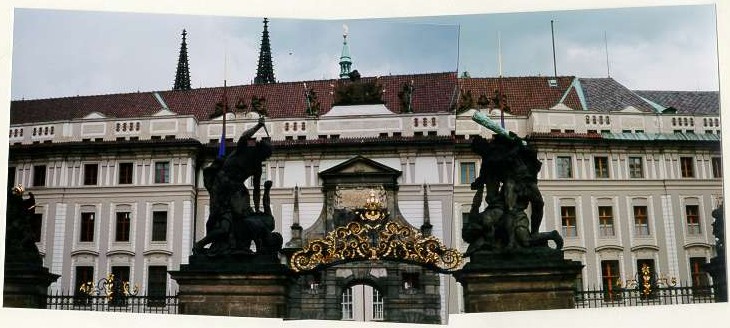After the Russian invasion of 1968, every Czech was confronted with the thought that his nation could be quietly erased from Europe, just as over the past five decades forty million Ukrainians have been quietly vanishing from the world without the world paying any heed. Or Lithuanians. Do you know that in the seventeenth century Lithuania was a powerful European nation? Today the Russians keep Lithuanians on their reservation like a half-extinct tribe; they are sealed off from visitors to prevent knowledge about their existence from reaching the outside. I don't know what the future holds for my own nation. It is certain that the Russians will do everything they can to dissolve it gradually into their own civilization. Nobody knows whether they will succeed. But the possibility is here. And the sudden realization that such a possibility exists is enough to change one's whole sense of life. Nowadays I even see Europe as fragile, mortal. […] As a concept of cultural history, Eastern Europe is Russia, with its quite specific history anchored in the Byzantine world. Bohemia, Poland, Hungary, just like Austria, have never been part of Eastern Europe. From the very beginning they have taken part in the great adventure of Western civilization, with its Gothic, its Renaissance, its Reformation --a movement which has its cradle precisely in this region. It was here, in Central Europe, that modern culture found its greatest impulse: psychoanalysis, structuralism, dodecaphony, Bart6k's music, Kafka's and Musil's new esthetics of the novel. The postwar annexation of Central Europe (or at least its major part) by Russian civilization caused Western culture to lose its vital center of gravity. It is the most significant event in the history of the West in our country, and we cannot dismiss the possibility that the end of Central Europe marked the beginning of the end for Europe as a whole.
Milan
Kundera in "Philip Roth, "Afterword: A talk with the Author, originally
in The New York Review of Books, November 30, 1980"
All of us can make some personal sacrifice for the sake of our ideals, if we agree with the Czech philosopher Jan Patocka that there are certain things for which it is worth while to suffer. [...] The first thing I'm recommending is the courage to be a fool. [...] Let us try to be foolish and, in all seriousness, demand a change of the seemingly unchangeable.
Vaclav
Havel, "The Power of Folly: Acceptance of the Erasmus Prize," in Cross
Currents: A Yearbook of Central European Culture, 6 (1987)

I believe in the great mission of the small nations which in today's world have been delivered to the tender mercies of the Great Powers and squelched and flattened to their measures. By their incessant search for their own identity and by their fight for survival, the small nations resist the terrifying push toward uniformity on this earth, making it glitter with a wealth of traditions and customs, so that human individualism, marvel and originality can find a home in this world. [...] I am convinced that the world would be better and less gloomy if the voices of Guatemalans, Estonians, Vietnamese, and Danes had a weight equal to the voices of Americans, Chinese or Russians.
Milan Kundera "Cesky udel." Listy, 19 Dec., 1968
A trace of the heroic dreamer, something mad and unrealistic, is hidden in the very genesis of the dissident perspective. In the very nature of things, the dissident is something of a Don Quixote. He writes his critical analyses and demands freedom and rights all alone, merely with a pen in his hand, face to face with the gargantuan might of the state and its politics. He writes, cries out, screams, requests, appeals to the law -- and all the time he knows that, sooner or later, they will lock him up for it.
Vaclav Havel, "An Anatomy of Reticence," in Cross Currents: A Yearbook of Central European Culture, 5 (1986)
Kindly
click here to return to Academic Interests
Please
click here to return to Additional Information


